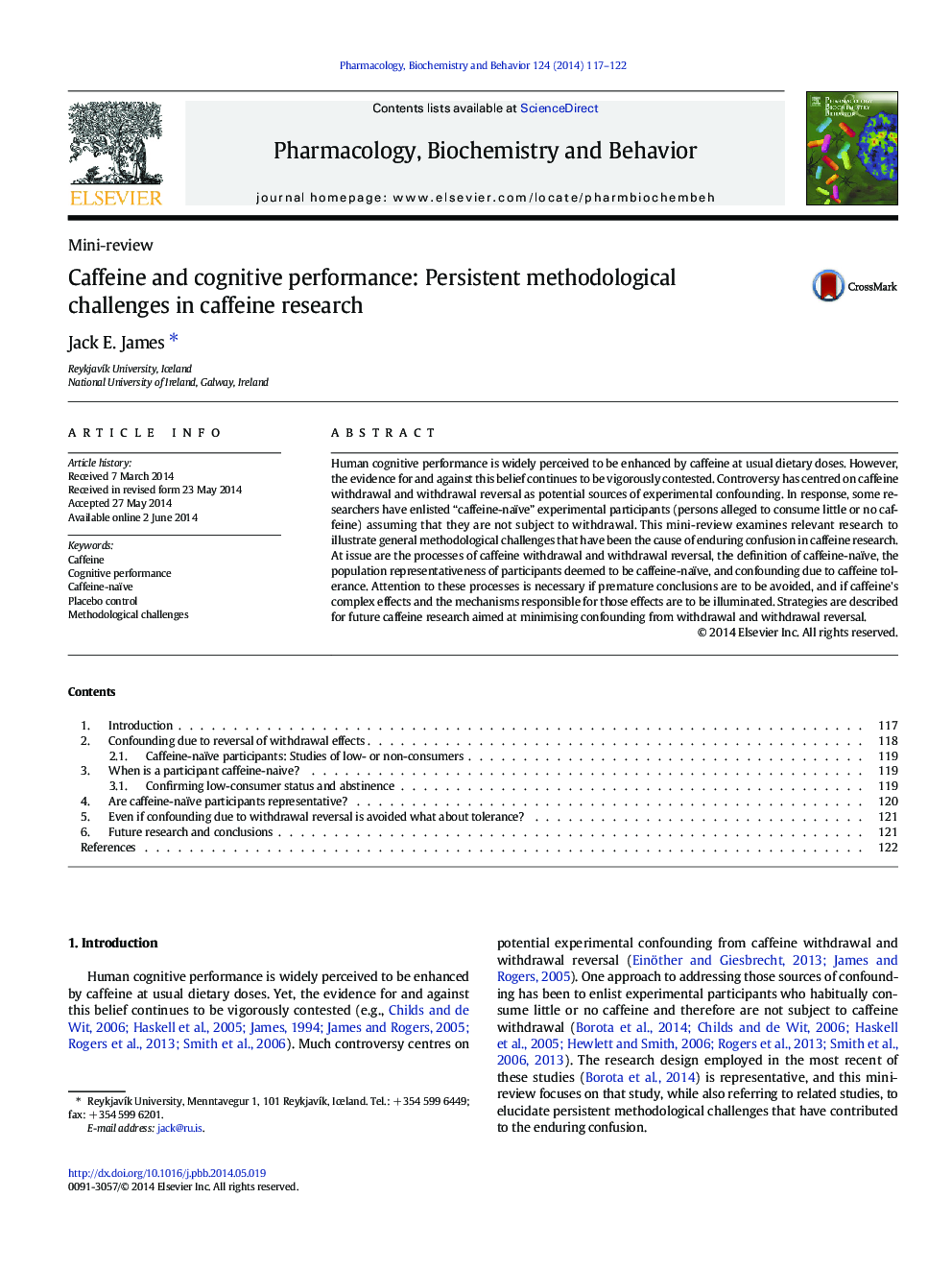| Article ID | Journal | Published Year | Pages | File Type |
|---|---|---|---|---|
| 8350925 | Pharmacology Biochemistry and Behavior | 2014 | 6 Pages |
Abstract
Human cognitive performance is widely perceived to be enhanced by caffeine at usual dietary doses. However, the evidence for and against this belief continues to be vigorously contested. Controversy has centred on caffeine withdrawal and withdrawal reversal as potential sources of experimental confounding. In response, some researchers have enlisted “caffeine-naïve” experimental participants (persons alleged to consume little or no caffeine) assuming that they are not subject to withdrawal. This mini-review examines relevant research to illustrate general methodological challenges that have been the cause of enduring confusion in caffeine research. At issue are the processes of caffeine withdrawal and withdrawal reversal, the definition of caffeine-naïve, the population representativeness of participants deemed to be caffeine-naïve, and confounding due to caffeine tolerance. Attention to these processes is necessary if premature conclusions are to be avoided, and if caffeine's complex effects and the mechanisms responsible for those effects are to be illuminated. Strategies are described for future caffeine research aimed at minimising confounding from withdrawal and withdrawal reversal.
Related Topics
Life Sciences
Biochemistry, Genetics and Molecular Biology
Biochemistry
Authors
Jack E. James,
